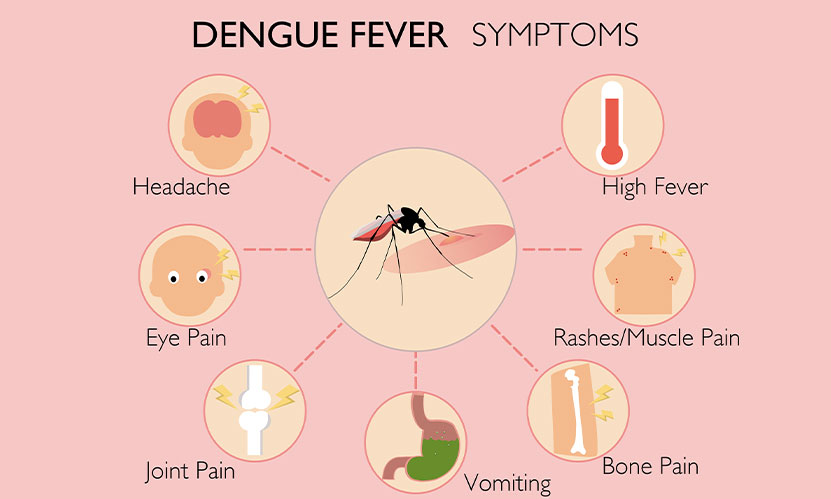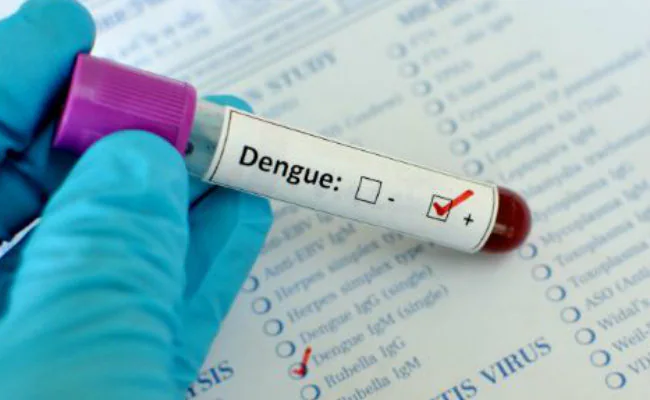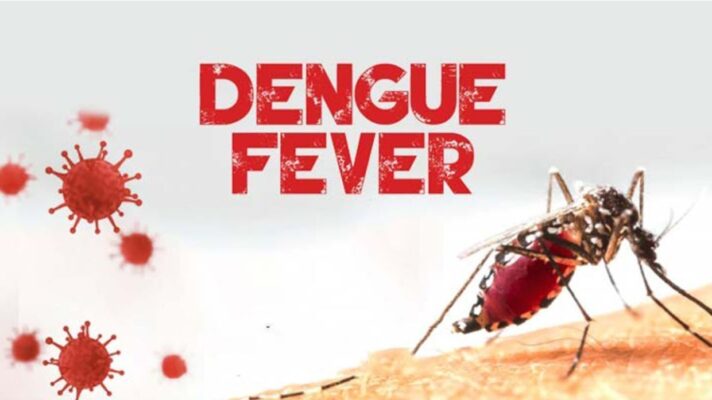EXPLAINER: 7 Essential Facts You Need to Know About Dengue Fever
Ghana has recorded its first nine cases of Dengue Fever in the Eastern Region.
According to the Ghana Health Service (GHS), the cases were confirmed after samples were sent to the Noguchi Memorial Institute for Medical Research (NMIMR).
The service has, therefore, directed all regional directors of health services and chief executives of teaching hospitals to disseminate this alert to all health workers within their regions, districts, and hospitals, including mission and private facilities.
This measure is intended to enhance surveillance of Dengue Fever and ensure that all clinical malaria cases undergo laboratory confirmation.
According to the World Health Organisation (WHO), about half of the world’s population is now at risk of dengue, with an estimated 100 to 400 million infections occurring yearly.
As discussions on the infection and its preventive measures continue in Ghana, The Ghana Report outlines seven major things you should know about Dengue fever.
1. What is dengue fever?
Dengue (break-bone fever) is a viral infection that spreads from mosquitoes to people. It is more common in tropical and subtropical climates. Dengue causes a wide spectrum of diseases, ranging from an infection that is nearly or completely asymptomatic to severe flu-like symptoms. In less common cases, some people may develop severe dengue, which can be fatal when not managed appropriately.
2. How can a person get infected?

There are a couple of ways that dengue is transmitted. First, the dengue virus can be transmitted to humans through the bites of infected female mosquitoes, primarily the Aedes aegypti mosquito. Other species within the Aedes genus can also act as vectors, but their contribution is normally secondary to Aedes aegypti.
Mosquitoes, in turn, can become infected when they bite a person infected with the virus. These infected mosquitoes can then spread the virus to other people through bites.
The dengue virus can also be transmitted from pregnant mother to child. A pregnant woman already infected with dengue can pass on the virus to her foetus during pregnancy.
3. You can get the dengue virus more than once
It is possible to get the dengue virus more than once. The virus responsible for causing dengue is called dengue virus (DENV). There are four DENV serotypes (DENV-1, DENV-2, DENV-3, and DENV-4), which means it is possible to be infected four times.
While recovery from the infection is believed to provide lifelong immunity against that serotype, cross-immunity to the other stereotypes is only partial and temporary. It is also important to note that a second infection carries a higher risk of developing severe dengue, which can be fatal.
4. Symptoms of Dengue fever
Upon being bitten by an infected mosquito, the virus enters the bloodstream, causing several symptoms.
Dengue symptoms usually begin 4 – 6 days after infection and can last up to 10 days. Symptoms can range from mild to severe. The most common symptoms of dengue are as follows:
- Sudden, high fever
- Nausea
- Vomiting
- Skin rash (which may appear 2 – 5 days after the onset of fever)
- Fatigue
- Severe headaches
- Backaches and severe body aches
There are also warning signs to watch out for, which may indicate you have severe dengue. These warning signs generally begin 24 – 48 hours after the fever disappears. Severe dengue can be life-threatening within a few hours and typically require hospitalisation:
- Pain or tenderness in the stomach or abdomen
- Repeated vomiting with dehydration
- Vomiting blood or the presence of blood in stools
- Feeling tired, restless, or irritable
- Low platelets with bleeding in the stomach, joints, muscles, gums, nose and brain (dengue haemorrhage fever)
- Hypotension/drop in blood pressure (dengue shock syndrome)
- Giddiness and fainting spells

5. How is Dengue diagnosed?
Diagnosing dengue fever can be difficult because its signs and symptoms can be easily confused with those of other diseases, such as malaria, leptospirosis, and typhoid fever.
Your doctor may ask you about your medical and travel history to diagnose your illness. Be sure to let your doctor know about all your trips and travel dates.
Doctors can also diagnose dengue infection with a blood test to check for the virus or antibodies.

6. Can Dengue fever be treated?
There is no specific treatment for dengue. If you suspect you have dengue fever, you may manage symptoms such as fever, muscle aches and pains with acetaminophen (paracetamol) medication.
Non-steroidal anti-inflammatory drugs like ibuprofen and aspirin are avoided as they can increase the risk of bleeding.
It’s also imperative that you get plenty of rest, drink lots of fluids, and see a doctor immediately.
7. How can it be prevented?
Following these simple preventive measures can help protect yourself from dengue fever.
Prevention is key in keeping mosquitoes at bay and reducing the risk of this mosquito-borne disease.
Here are some tips;
- Remove stagnant water and potential breeding sites around your home. Use mosquito nets and screens on windows and doors.
- Keep your living area clean and dispose of garbage properly. Trim bushes and shrubs to reduce mosquito resting areas.
- Spray insecticide in dark corners of your home, including under the bed, behind the sofa, and behind curtains.
- Wear long sleeves, pants, and socks when outdoors. Light-colored clothing can also help repel mosquitoes.
- Consider air conditioning at home, if available.
- Apply mosquito repellent, even at home.
- Limit outdoor activities during the early morning and late afternoon when mosquitoes are most active.


